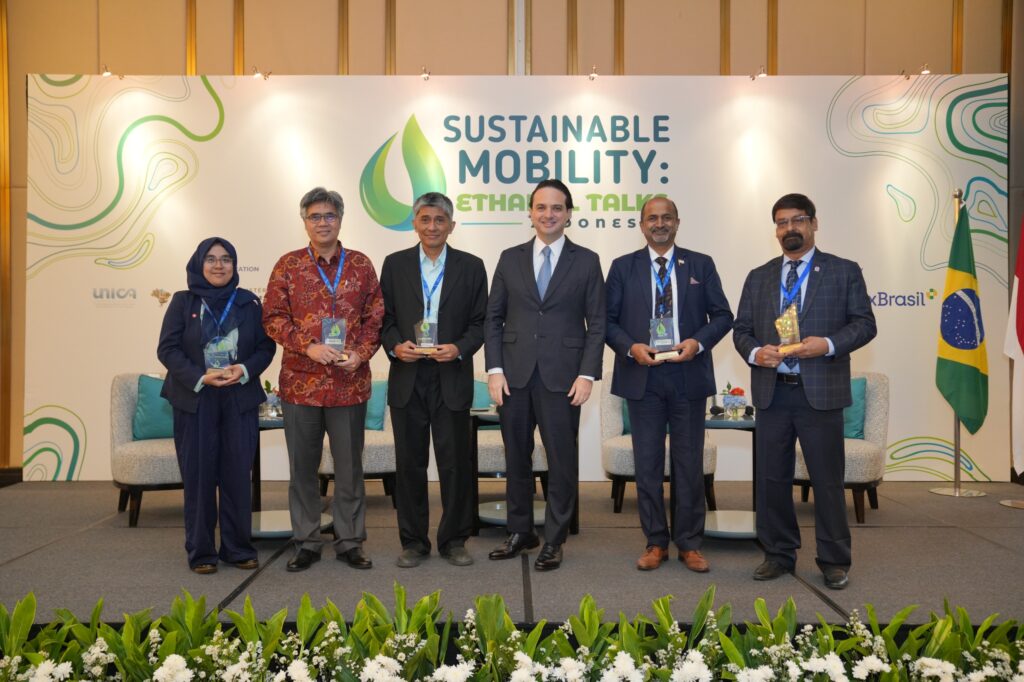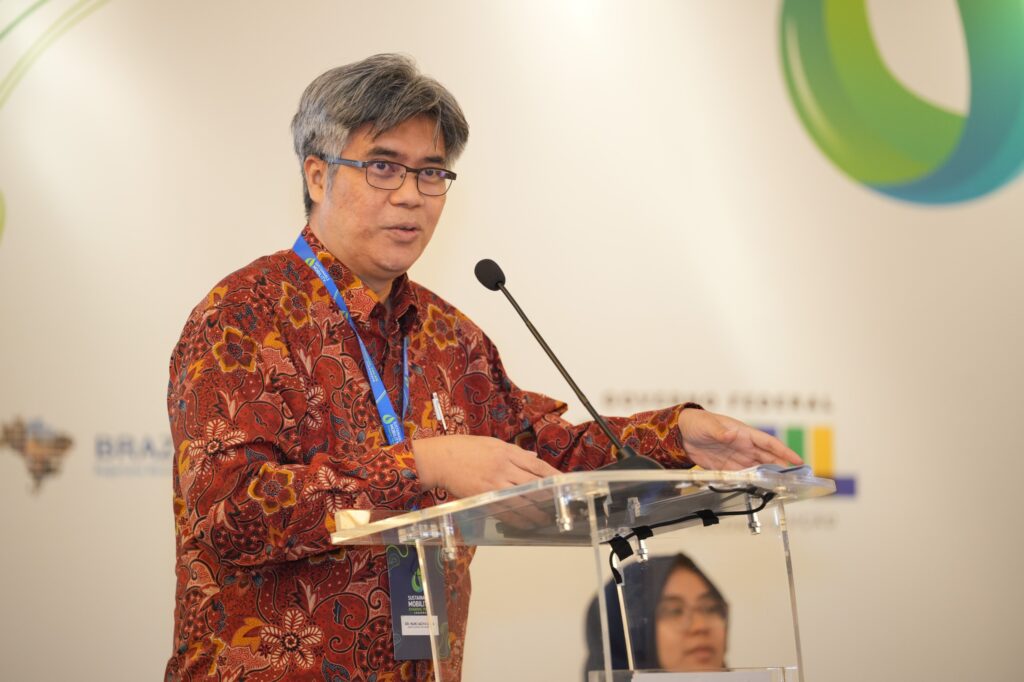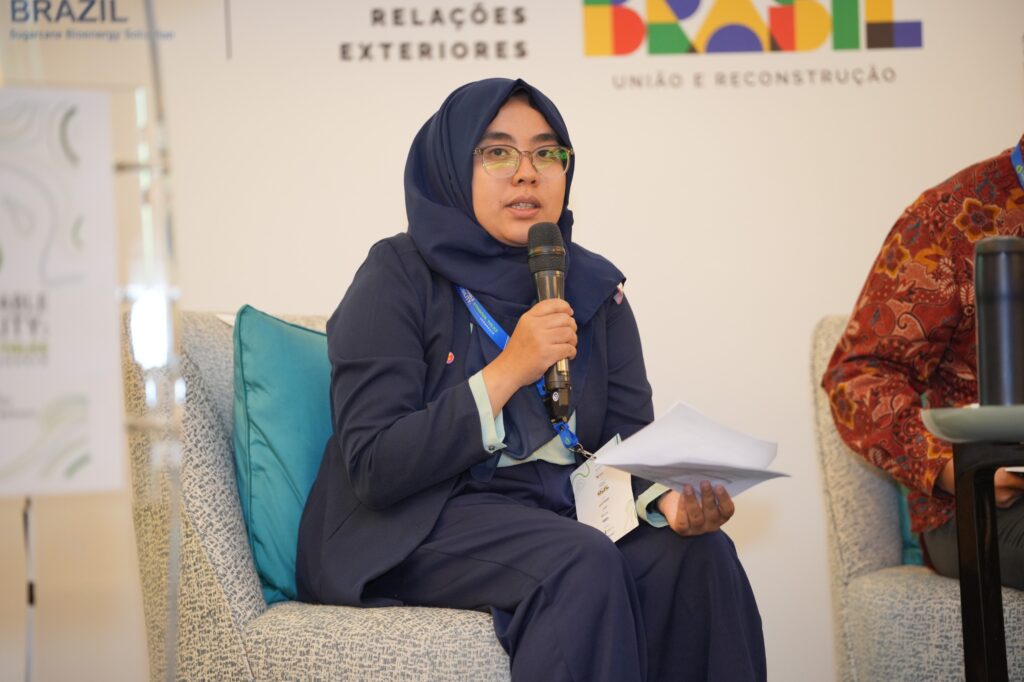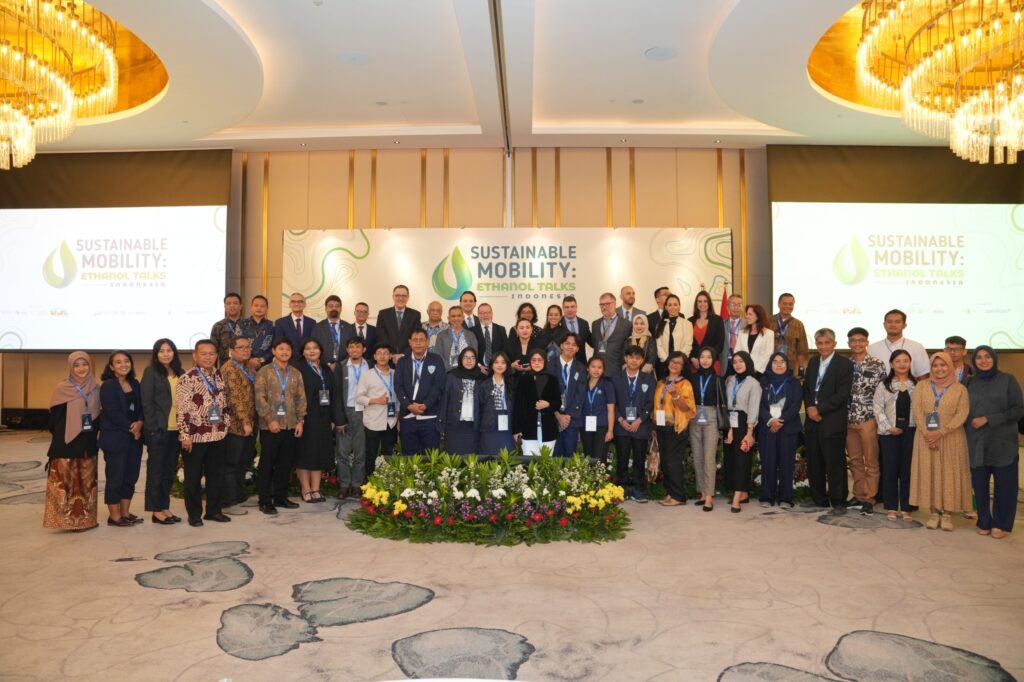Menu

The ASEAN Centre for Energy (ACE) participated in the Sustainable Mobility: Ethanol Talks Indonesia, held on Monday, 9 October 2023, in Jakarta, Indonesia. The event, held by the Brazilian Sugarcane and Bioenergy Industry Association (UNICA) and Brazilian Ethanol Cluster (APLA) in collaboration with the Brazilian Embassy in Jakarta, aimed to provide. Brazil shared their experience in developing ethanol market competitiveness in the transport sector, which resulted in discussions on ethanol’s economic, social, and environmental benefits for sustainable mobility, as well as some of the most important issues of implementation.
The event opened with remarks from H.E. Mauro Vieira, the Minister of Foreign Affairs of the Federative Republic of Brazil, H.E. Arifin Tasrif, Minister of the Energy and Mineral Resources of Indonesia, and I Gusti Ketut Astawa, the Deputy for Food Availability and Stabilization, National Food Agency Indonesia. It was then followed by a plenary discussion divided into two sessions. The first session discussed the public policies on bioethanol implemented in Indonesia. Notable panellists include Márcio Elias Rosa, Brazil’s Vice Minister of Trade, Industry and Development, and Ir. Edi Wibowo, M.T, the Director of Bioenergy at the Ministry of Energy and Mineral Resources of Indonesia.
“I hope this and other national experiences that we will share today will contribute to increasing the production and use of biofuels in Southeast Asia. We are geographically far apart, but we share several social, economic and environmental characteristics. Thanks to these commonalities, I trust our biofuels story will interest you. Brazil welcomes Indonesia’s ambitious strategy translated into the Sugarcane Bioethanol Program for Energy Security. We are ready to strengthen dialogue on this issue.” H.E. Mauro Vieira said.
H.E. Arifin Tasrif added, “The Sugarcane Bioethanol Program for Energy Security needs commitment from related parties to implement bioethanol blending, particularly bioethanol producers dan gasoline distributors. Synergy and coordination across ministries and/or agencies and other related stakeholders are required, including harmonising policies institutional roles, and programs.”

The second session, moderated by Ms Monika Merdekawati from the Research Analyst, Sustainable and Renewable Energy (SRE) Department of the ASEAN Centre for Energy (ACE) talked about the progress of ethanol as an energy source in Asia. Dr Nuki Agya Utama, Executive Director of ACE, underscored the rich and bioenergy potential that ASEAN countries have in energy-related sectors, such as power generation, industrial, and transportation. Dr Nuki also discussed The ASEAN Bioethanol R&D Roadmap, which is divided into three terms that differ on the focus areas. The near term focuses on upstream and downstream processes, then broadening in mid-term to cover feedstock development and forward-looking midstream technologies. Dr Nuki concluded the session with two key highlights, which emphasised the collective approach as an essential step to accelerate biofuel R&D activities in ASEAN, and how extensive biofuel R&D by respective agencies in each ASEAN Member State (AMS) will help the region to accelerate the dissemination process and resolve the bottleneck of biofuel utilisation in the whole supply chain, including the collaboration with Brazil.

The third session focused on using ethanol as a fuel source in the automotive industry. Notable speakers include Abdul Rochim, Future Automotive Technology Compartment Member, Association of Indonesian Automotive Industries (GAIKINDO) and Fabio Branco, Brazilian Sugarcane and Bioenergy Industry Association (UNICA). The final session discussed technological solutions for decarbonisation, with notable speakers such as Flavio Castellari, the CEO of Brazil Ethanol Cluster (APLA) and Oki Muraza, the Senior Vice President of Research & Technology Innovation, PT. Pertamina. The plenary discussion session concluded with an emphasis on the necessary next steps. Evandro Gussi, the CEO of Brazilian Sugarcane and Bioenergy Industry Association (UNICA), underscored the existing Brazilian ethanol blending policy.

